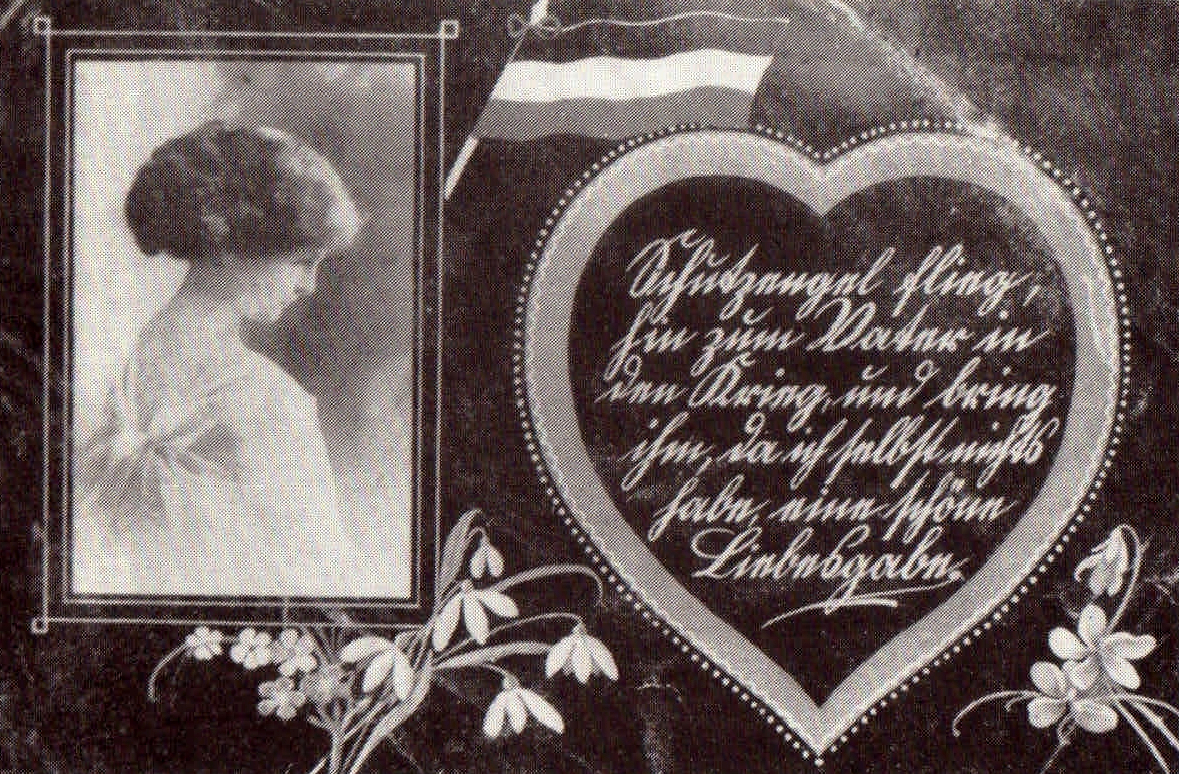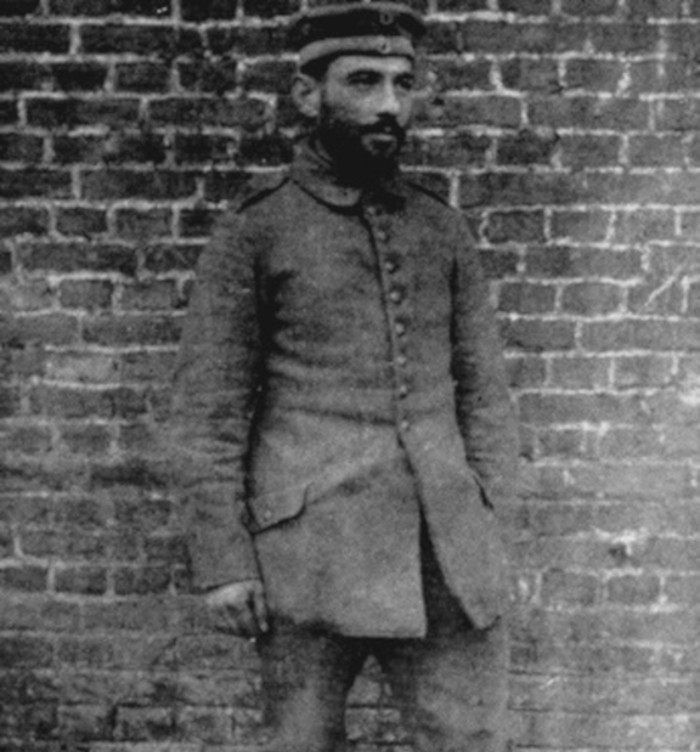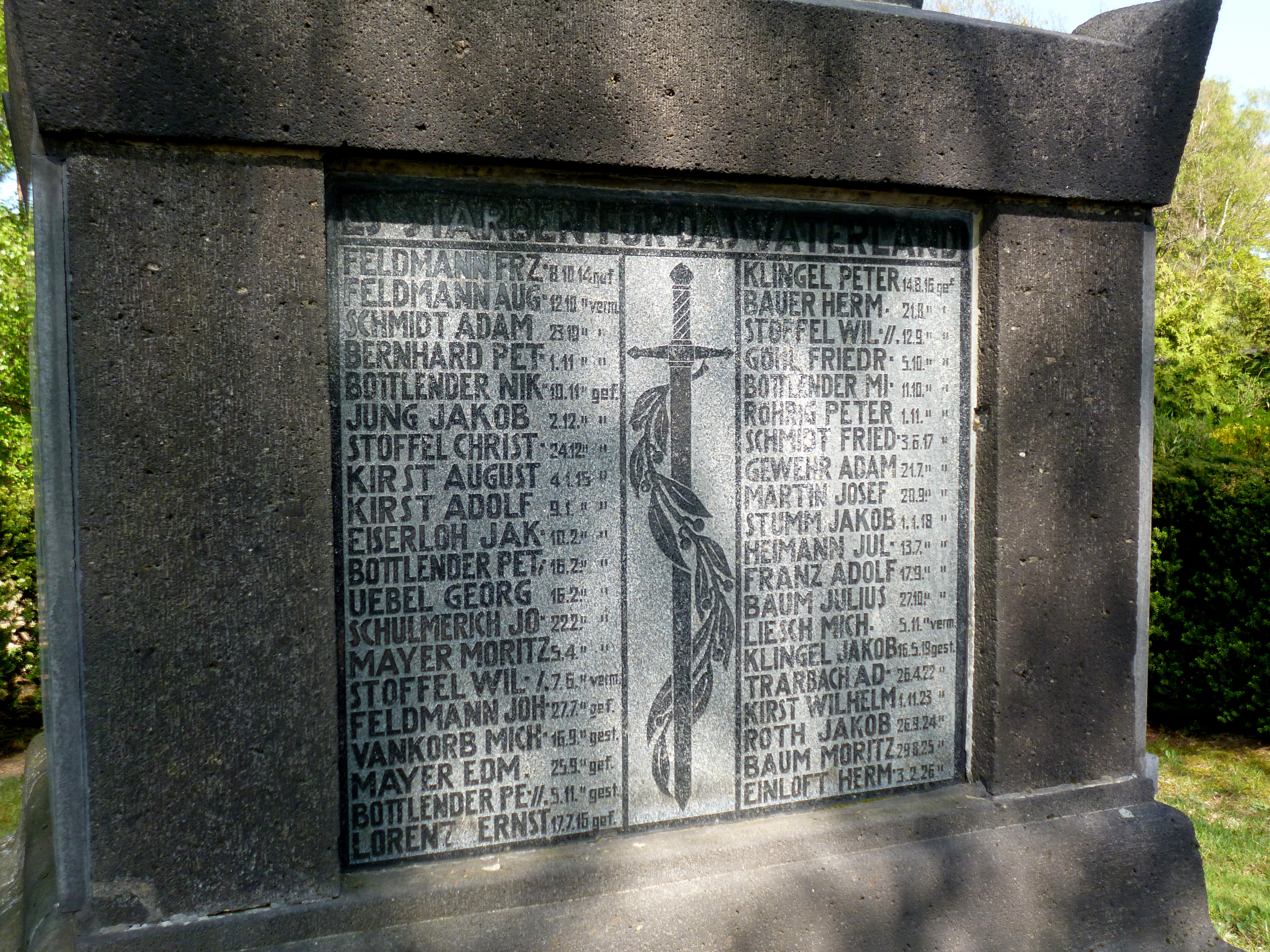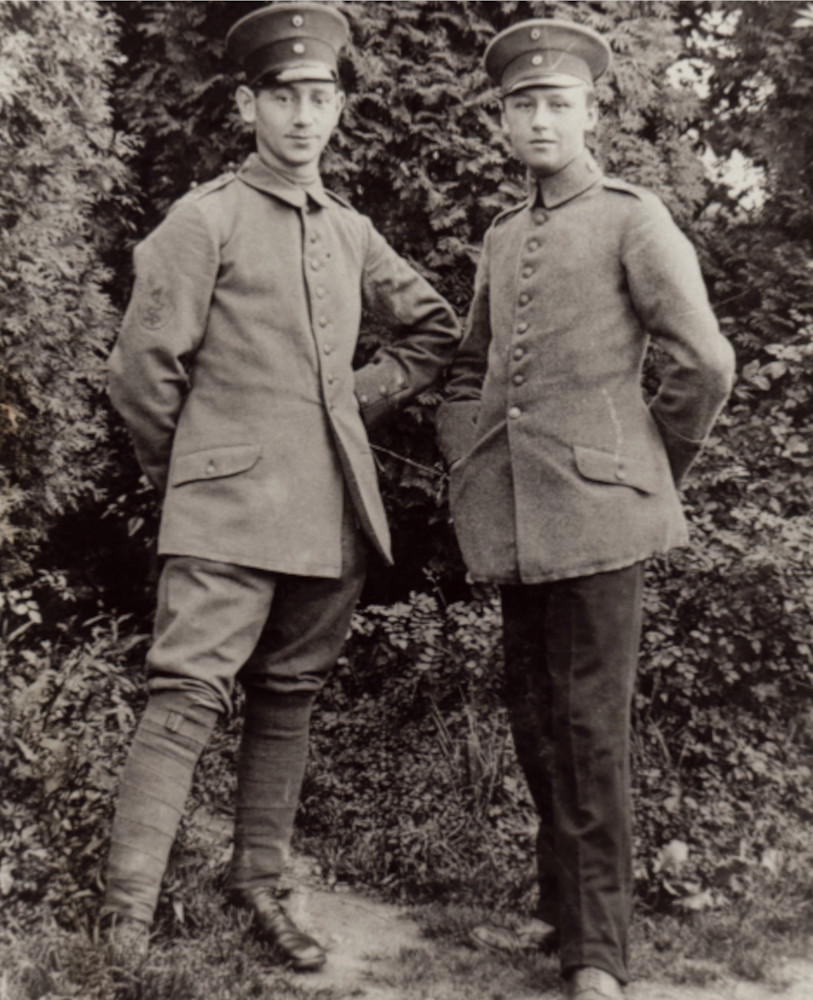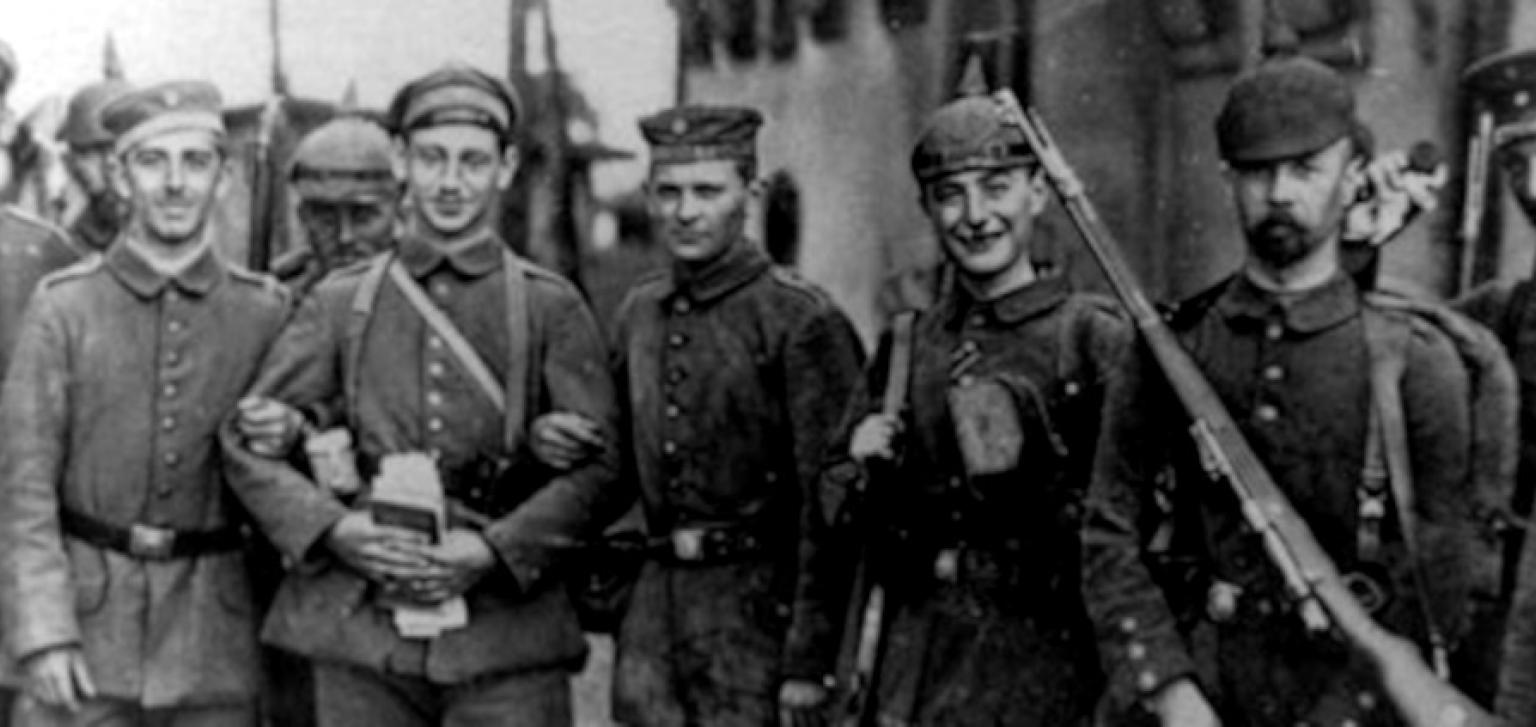
„Liebt nächst Gott das Vaterland!“ („Next to God should be loved the Fatherland!“)
The First World War and the devastating consequences for mankind, the economy and world affairs was a turning point in German-Jewish history. Organisations such as the Central Association for German Citizens of Jewish Faith (CV) called for mobilization into the Imperial army in 1914 and to give one’s life for a “Fatherland” that had never afforded its Jewish citizens equal recognition as Germans citizens. Despite the 100,000 Jewish soldiers in the army, 12,000 of whom were killed in action, wide sections of the population did not want to acknowledge that these Jews had served their “Fatherland” in the same capacity as the non-Jews had. Four Jews from Laufersweiler alone, and at least 29 in today's Rhine-Hunsrück district, were killed for "Volk und Vaterland".
Discrimination against Jewish soldiers
The “Reichshammerbund” (a German anti-Semitic league) accused the Jews of generally shirking their duties and possessing a lack of affection for the Fatherland. The “Alldeutsche Verband” (a pan-Germanic league) even went so far as to label the exclusion and banishment of Jews out of the empire as a “war aim”. The so-called „Judenzählung“ (Jewish census) taken in the German army in 1916 was ignored and made public only in 1922. It revealed a picture exactly opposite of that claimed by the anti-Semites. It insinuated that the leftist parties and, above all, the Jews had stolen the victory from the German army (Stab-in-the-back myth), which led to the collapse of the monarchy and the old order. Even though the Weimar Constitution (1919) made way for this early German democracy to afford its citizens full rights with opportunities for development for the first time, it did nothing to overcome the open anti-Semitism.
The following slide presentation depicts some of the few preserved reminders of the service rendered by Jewish soldiers from the Hunsrück in the First World War.
From remembrance to defamation
The Jewish soldiers who survived had experienced terrifying horrors with many falling away from their faith and traditions, and so just wanted to start a new and different life. In 1919 the „Reichsbund Jüdischer Frontsoldaten“ (RjF - German Association of Jewish Front-line Soldiers) was founded, going on the offensive in the belief that it would form a counterweight against potential defamations. The RjF initially proved to be very attractive in the Hunsrück region, as well. Yet, reality very quickly surpassed the prophetic words expressed by front-line officer and Knight's Cross recipient, Ludwig Haas (FVP): „Now we’ve been branded“.
Commemorative ceremonies with war memorials erected in honour of the fallen heroes, including the fallen Jewish soldiers, accompanied the years leading up to 1930. After 1933, however, the names of these soldiers were eradicated from the monuments - because then a Jew could not have been brave enough, and for sure could not have given his life for his country. After 1935, at the latest, Jews were considered to be a „racially foreign people“ and no longer citizens of the Reich with equal standing.


